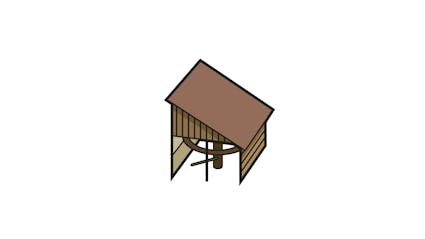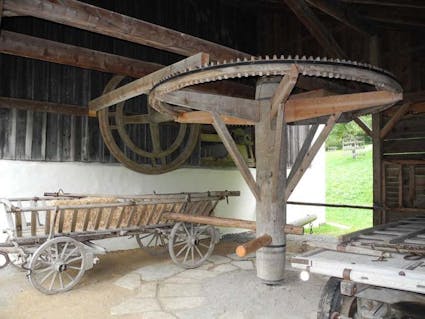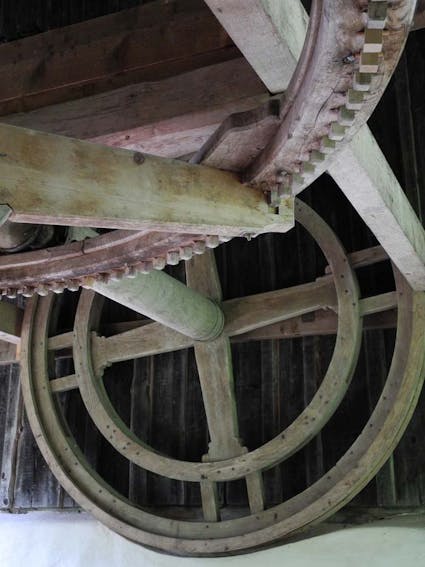534 – Gin from Ecoteaux, Vaud, 19th. Century
Donkeys, horses or oxen trotted around in gins and drove other mechanisms via axles and gears.

Muscle power for mills
Mills demonstrate how gear trains transmit water power from the vertical to the horizontal. The horse gin operates with muscle power: A horse (or an ox) walks around in a circle. It rotates a vertical shaft attached to a wooden-toothed gear which drives a large wooden wheel on the side of the barn. From here leather drive belts power the rolls of a machine in the barn. Often the machine serves to thresh grain.

Early mechanisation
It is not accidental that this system comes from the canton of Vaud, the grain belt of Switzerland. In its original location, the village of Maracon, a neighbour of Ecoteaux, the gin was built onto the working area of a barn. In the 19th century such mills were quite popular in the Swiss Midlands: This first phase of mechanisation in agriculture supplanted laborious manual threshing with flails. Horse gins appeared in the canton of Vaud in the 1830’s. The southern part of the neighbouring canton of Fribourg alone had more than 100 of them. In the 1860’s mobile threshing machines powered by steam revolutionised threshing work – thousands of “thrashers” lost their work.

Diverse souces of energy
Water power drove sawmills, wind power turned grain mills, human muscle power swung threshing flails. The power of hooved animals was a fourth possibility. Donkeys, horses or oxen trotted around in gins and drove other mechanisms via axles and gears. In the 15th and 16th centuries they drove wooden pumps in Europe’s big mines – the principle was already known to the Egyptians and the Romans.
Ballenberg
Swiss Open-Air Museum
Museumsstrasse 100
CH-3858 Hofstetten bei Brienz
Opening hours Administration
3 November 2025 to 8 April 2026
From Monday to Friday
8.30 am to 11.30 am
1.30 pm to 4.30 pm
Opening hours
9 April to 1 November 2026
10 am to 5 pm daily